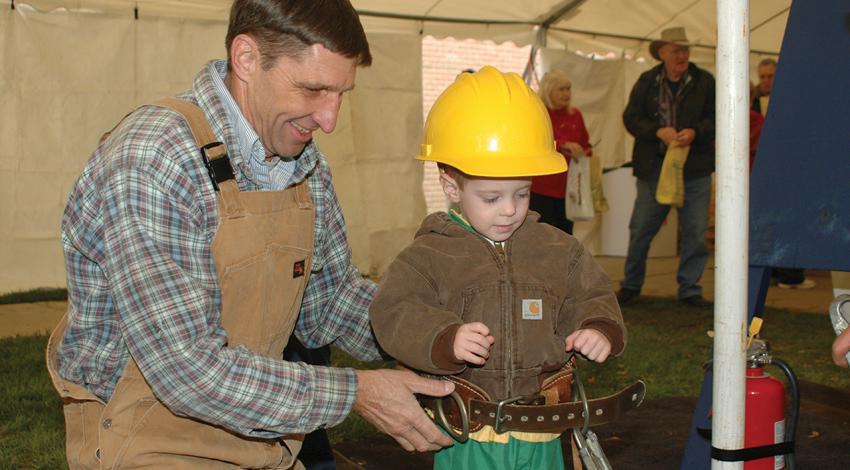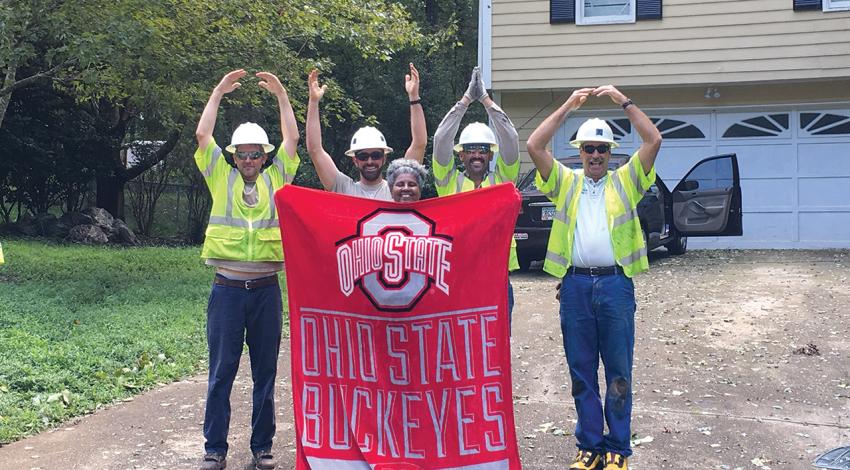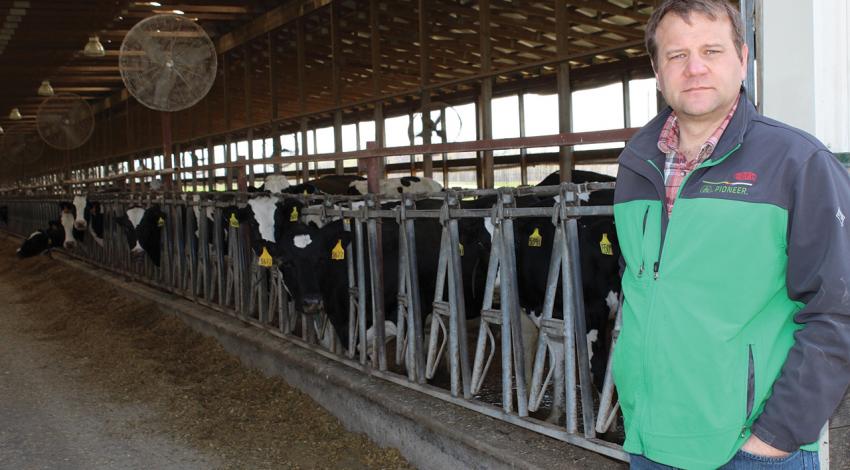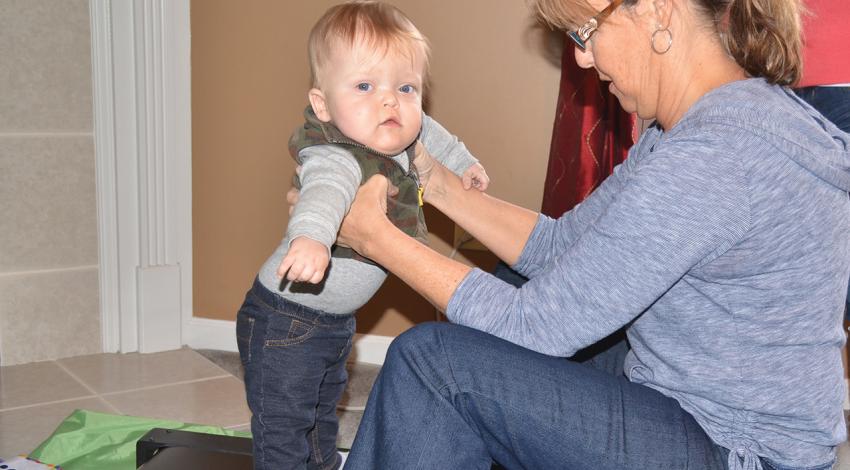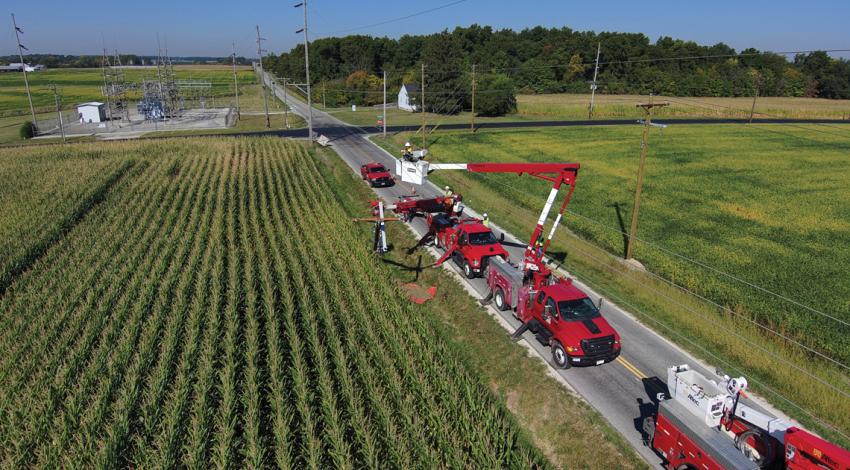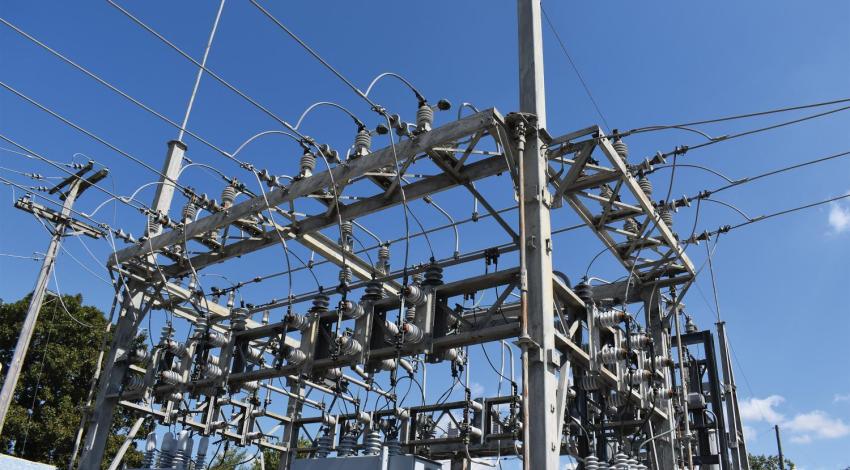Tim Kuenning looks at a bark-covered log and envisions a design — a majestic eagle, a plump jack-o’-lantern, a bowlegged cowboy with saddle in hand, a hungry seagull perched on a dock waiting for lunch to swim by. Soon, his vision materializes amid a shower of sawdust.
“I carve things in all shapes and sizes,” he says. “However, people are happiest when I do eagles.”
Kuenning, a member of St. Marys-based Midwest Electric, remembers watching a chainsaw artist — a Stihl factory representative — demonstrate how to make rustic chairs and larger-than-life mushrooms with well-placed swipes of the blade.
“I told my wife I could do better than that, and I went to work proving it,” he says. “There has been a lot of practice during the ensuing years — it’s something you have to learn on your own, because no one offers classes on the subject.”




